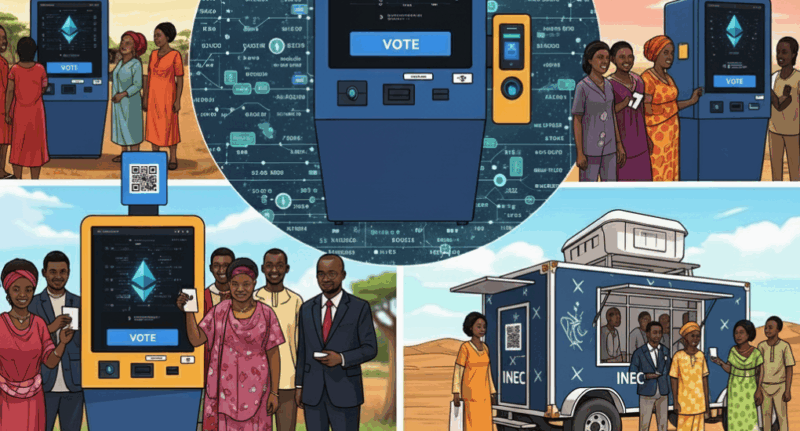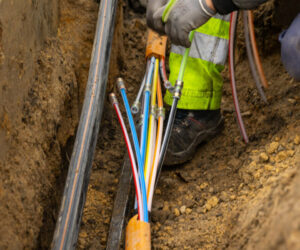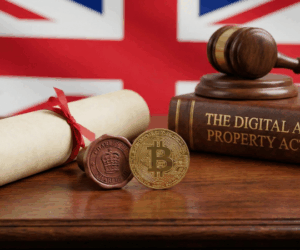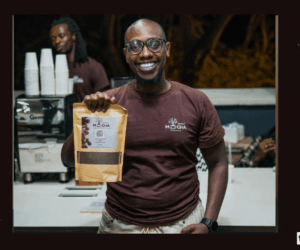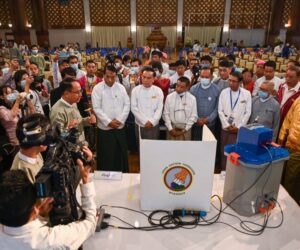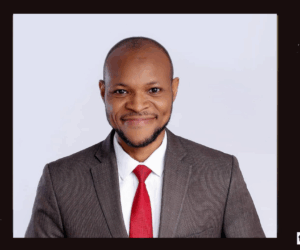Across Africa, futuristic innovations are springing up, reshaping how the continent tackles its unique challenges. From fintech solutions driving financial inclusion to revolutionary agricultural and transportation systems, technology is fuelling progress and driving a new revolution.
Yet, without transparent, fraud-proof elections to install credible leaders, these giant strides and ambitious projects risk stalling, because, true to the saying, everything rises and falls on leadership.
A glance at Africa’s sociopolitical landscape reveals a worrying trend. Electoral systems are bedevilled with challenges like vote buying, multiple voting and duplicate registrations, and mistrust in institutions.
Nigeria, Africa’s most populous nation, has taken this even a nudge higher. Since the return to a democratic system of governance in 1999, the country has struggled to achieve free, fair and credible elections, with each election circle arguably worse than the previous.
The 2023 general election, for instance, was marred by logistical failures and allegations of rigging and mistrust in the election umpire, the Independent National Electoral Commission (INEC). Similarly, voter turnout plummeted to historic lows, with only 26.7% of registered voters participating, according to Yiaga Africa’s report.
Such distrust undermines democracy’s foundation, making the case for a technological overhaul compelling.
Blockchain, particularly public blockchain, emerges as a powerful tool to address these issues, offering transparency, immutability, and decentralisation, features that could redefine electoral integrity in Nigeria and beyond, restoring public trust in the democratic process.
Why Blockchain? You may ask.
At its core, blockchain is a decentralised ledger where every transaction is recorded, time-stamped, and visible to all participants.

According to Olayinka Omoniyi, a blockchain expert, “It is like a supermarket ledger shared by co-owners. They don’t need to question each other’s trust because they can both see the inflow and outflow in real time.”
Public blockchains, unlike private ones, ensure that every stakeholder – voters, candidates, and observers – can access and verify the ledger, fostering trust in a process historically plagued by opacity.
Transparency is the blockchain’s hallmark. In Nigeria, where voter registers have been riddled with errors, blockchain’s immutable database could eliminate manipulation. Once a voter’s record or vote is logged, it cannot be altered without leaving a visible digital footprint.
This immutability ensures that attempts to “overbloat or deduct” voter numbers, as Olayinka puts it, are immediately detectable.
Additionally, decentralisation reduces the risk of a single point of failure, making it nearly impossible for any central authority, including INEC, to manipulate results without consensus from the network.
Similarly, smart contracts, self-executing codes on the blockchain, further enhance security. These contracts can enforce eligibility criteria, such as ensuring voters are 18 or older, and prevent multiple voting by allowing only one vote per election cycle.
“The smart contract is like a digital referee,” Olayinka explains, “ensuring rules are followed and flagging violations in real time.”
Because smart contracts are open-source, they can be audited by independent experts, reducing the risk of hidden biases or vulnerabilities.
Can decentralised voting systems play a role in Nigeria’s 2027 elections?
Could Nigeria implement blockchain-based voting by 2027? Olayinka believes it’s feasible with the right political will and a small, skilled team of 5–7 developers.
Two approaches dominate the discussion: tokenisation and Non-Fungible Tokens (NFTs). In the tokenisation model, each voter receives a set number of tokens for different elections, presidential, senatorial, or gubernatorial, spendable only once per cycle via a smart contract.


Alternatively, an NFT-based system assigns each voter a unique digital voter’s card, which they use to sign a transaction when casting their vote. Both methods allow voting from home, slashing logistical costs and risks like election-day violence.
The expert envisions a hybrid system to accommodate Nigeria’s diverse population. Tech-savvy urban voters could vote online using their NFTs or tokens, while rural or less digitally literate voters could use physical cards at polling stations equipped with blockchain-integrated machines, similar to ATMs.
“Everybody can be given a card, no matter how old you are,” he notes, emphasising accessibility. This hybrid approach addresses Nigeria’s digital divide, where 60% of the population lacks internet access, according to 2023 World Bank data.
Security is another critical concern, especially given INEC’s reports of thousands of cyber threats per second during past elections. Public blockchains like Solana or Nigeria’s homegrown Bantu Blockchain can handle thousands of transactions per second, ensuring scalability even if 60 million voters log in simultaneously.
Moreover, the decentralised nature of these platforms, coupled with robust cryptographic techniques like zero-knowledge proofs (ZK proofs), protects voter privacy while maintaining auditability.
ZK proofs allow voters to prove their eligibility without revealing their identity, addressing concerns about coercion or retaliation.
Real-world lessons: Blockchain voting in action
Globally, blockchain-based voting has shown promise.
In 2018, Sierra Leone piloted blockchain to verify presidential election results transparently, a move hailed for enhancing trust. West Virginia, USA, became the first state to test mobile blockchain voting in a 2018 federal election, allowing overseas military personnel to vote securely via a blockchain app.
Estonia, a pioneer in digital governance, has integrated blockchain into its national data infrastructure since 2005, underpinning its e-voting system and achieving voter turnout rates above 40%.


These examples offer lessons for Nigeria. Sierra Leone’s pilot demonstrates blockchain’s ability to counter fraud in low-trust environments, while Estonia’s success highlights the importance of digital literacy and infrastructure. West Virginia’s mobile voting model could inspire Nigeria to enable diaspora voting, a long-standing demand.
Olayinka also points to Decentralised Autonomous Organisations (DAOs), where token holders vote on community decisions, as a blueprint for structuring Nigeria’s electoral system. “Every citizen could be a member of an INEC DAO,” he suggests, with votes recorded transparently on the blockchain.
However, despite its potential, implementing blockchain voting in Nigeria isn’t a walk in the park. The primary obstacle, Olayinka emphasises, is political will. “It’s not about infrastructure or expertise; it’s the will to see good governance,” he says. Many African leaders benefit from opaque electoral systems, making them resistant to change.
Digital literacy is another challenge; with millions of Nigerians yet to access the internet, extensive civic education is needed to familiarise voters with blockchain-based systems.
Infrastructure also poses concerns. While blockchains like Bantu or Solana can handle high transaction volumes, Nigeria’s inconsistent power supply and internet connectivity require robust offline solutions, such as pre-signed transactions that sync when connectivity is restored.
The expert advocates for locally developed blockchains to reduce external influence, proposing that INEC collaborate with private experts to create a public blockchain where NGOs, activists, and citizens run nodes to ensure decentralisation.


Cost is another consideration. While blockchain could reduce long-term expenses by eliminating manual processes, initial setup costs for infrastructure and training are significant. However, examples like Sierra Leone’s pilot show that small-scale implementations can be cost-effective, paving the way for broader adoption.
It’s important to point out that convincing Nigeria’s leaders to embrace blockchain voting requires a compelling pitch. Olayinka’s advice to the president is succinct: “If you care about your legacy and want citizens to support your policies, create a system where elections are fair and transparent.”
Blockchain offers Nigeria a chance to lead Africa in democratic innovation, addressing voter fraud, mistrust, and logistical inefficiencies. By integrating voter registries with national databases like the National Identification Number (NIN), blockchain could eliminate duplicate entries and underage voting, creating a robust foundation for e-voting and diaspora participation.
As Africa’s largest democracy, Nigeria’s adoption of blockchain could inspire other nations. Countries like Romania and Sierra Leone have already tested blockchain’s potential, and Nigeria’s scale could set a continental precedent.
With the right political will, expertise, and hybrid infrastructure, blockchain-based voting could transform Africa’s elections, ensuring that leadership truly reflects the will of the people and that progress from digital innovations stands the test of time.

